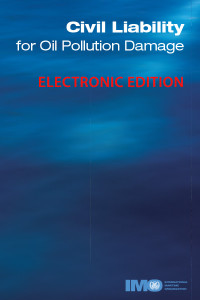
The Convention on the Prevention of Marine Pollution by Dumping of Wastes and Other Matter, 1972 (London Convention) and its more modern, self-contained 1996 Protocol (London Protocol) aim to protect the marine environment from all sources of pollution and, in particular, control and manage the dumping of wastes and other matter at sea.
This 2021 edition of the Waste Assessment Guidelines under the London Convention and Protocol presents updated guidance to facilitate the implementation of the London Convention and London Protocol, including Revised specific guidelines for the assessment of vessels and Revised specific guidelines for assessment of platforms or other man-made structures at sea. It also provides a list of additional guidance documents developed by the Contracting Parties, to further assist new and prospective Parties in the implementation of the treaties.
Foreword
Since 1997, the governing bodies of the London Convention and its Protocol have adopted a series of guidance documents to facilitate the process of assessment of waste and other matter in accordance with the two treaties. These guidance documents were initially published in the 2006 title, Guidelines on the Convention on the Prevention of Marine Pollution by Dumping of Wastes and Other Matter, 1972.
Over the years, these guidelines have been under continual review, taking into account recent developments and experiences gathered by Contracting Parties. This 2021 edition includes revised Specific Guidelines approved by the governing bodies for the assessment of vessels and for the assessment of platforms or other man-made structures at sea. A list of additional guidance documents that may be of interest to the reader can be found in the annex of this publication.
Foreword
Introduction
Generic waste assessment guidelines
Dredged material assessment guidelines
Sewage sludge assessment guidelines
Fish waste assessment guidelines
Vessel assessment guidelines
Platforms and structures assessment guidelines
Inert, inorganic geological material assessment guidelines
Organic material of natural origin assessment guidelines
Bulky items assessment guidelines
Carbon dioxide streams assessment guidelines
Annex: Additional guidance documents
As a specialized agency of the United Nations, IMO is the global standard-setting authority for the safety, security and environmental performance of international shipping. Its main role is to create a regulatory framework for the shipping industry that is fair and effective, universally adopted and universally implemented.
In other words, its role is to create a level playing-field so that ship operators cannot address their financial issues by simply cutting corners and compromising on safety, security and environmental performance. This approach also encourages innovation and efficiency.
Shipping is a truly international industry, and it can only operate effectively if the regulations and standards are themselves agreed, adopted and implemented on an international basis. And IMO is the forum at which this process takes place.
- Number of Pages:
- 140
- Published Date:
- June 2021
- Book Height:
- 295 mm
- Book Width:
- 210 mm
- Author:
IMO
- Preview:
- Yes




